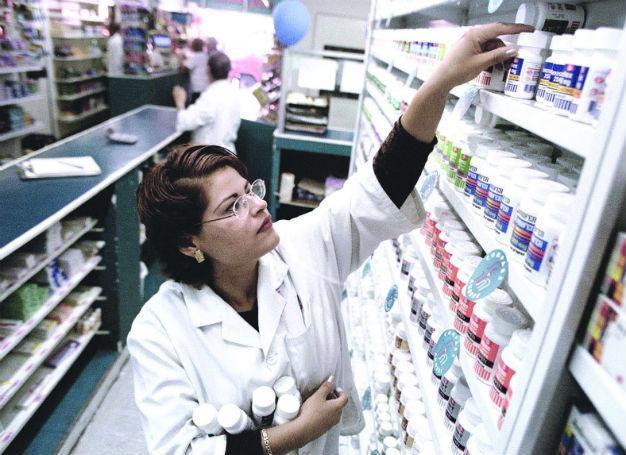No more free medicine to Syrian refugees without new protocol: Association
Meltem Özgenç - ANKARA

The general secretary of the Turkish Pharmacists’ Association (TEB) has said pharmacies across the country will stop providing Syrian refugees with free medication unless concrete steps are taken to institute a new protocol, as pharmacies have not been paid for six months.
TEB General Secretary Arman Üney said there was no extant protocol between the association and Turkey’s Disaster and Emergency Management Authority (AFAD), adding that pharmacies supplying medication to Syrian refugees have not been paid for six months.
If no concrete steps are taken to resolve this issue by March 31, pharmacies will stop providing medication to Syrian refugees, Üney said.
In a written statement, the TEB said pharmacists have been continuing to provide medication from their pharmacies for months to refugees under temporary protection. “Despite our negotiations and our devoted efforts to not disrupt the continuity of service, all our efforts and contacts with authorities, mainly with the AFAD, have been fruitless. Our medicine services that we have maintained without any protocol have reached the point of stagnation now,” the statement said.
Speaking to daily Hürriyet, Üney said almost 3 million Syrian refugees have been receiving continuous health and medicine services since they arrived in Turkey. “We, pharmacists, have provided medication to refugees from 26,000 pharmacies in Turkey. Because control, registration and payments are dealt with by different ministries, there is chaos and the free medication service is bound to stop,” he said.
“Until the date Oct. 12, 2015, chambers of pharmacists located in the region along the Syrian border provided medication to refugee camps and refugees in coordination with the offices of governors and provincial directorates of disaster,” Üney said, adding, “After this date, a new practice began nationwide, actually, without consulting the TEB. Because of the chaos in authorities, because of uncertainties, because of the lack of regulations, the budgets of pharmacies have been shaken due to not being paid for six months.”
Üney also said that in the middle of this major human tragedy, the refugees and the pharmacists should not be further victimized. There were 3 million prescriptions waiting to be paid because the necessary checks were not conducted, he said. Pharmacists had to take loans from banks to pay their debts, according to Üney, who said, “We will stop giving medication to refugees unless a solution is found by March 31.”
 The general secretary of the Turkish Pharmacists’ Association (TEB) has said pharmacies across the country will stop providing Syrian refugees with free medication unless concrete steps are taken to institute a new protocol, as pharmacies have not been paid for six months.
The general secretary of the Turkish Pharmacists’ Association (TEB) has said pharmacies across the country will stop providing Syrian refugees with free medication unless concrete steps are taken to institute a new protocol, as pharmacies have not been paid for six months.